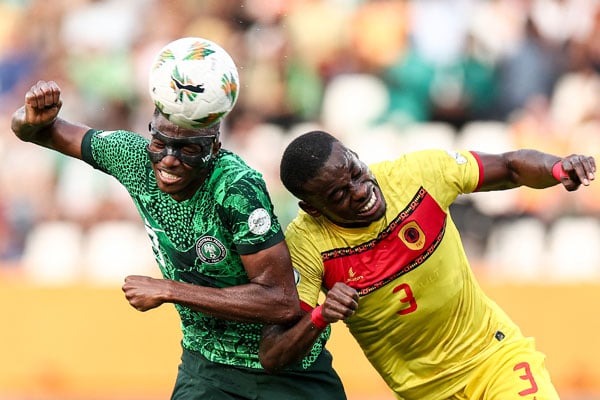East Africa should be taking lessons from ongoing Afcon

Fans are seen inside the Yamoussoukro Stadium, built for the 2023 the Africa Cup of Nations (CAN), before a qualification football match later that evening between the Ivory coast and Zambia in Yamoussoukro on June 3, 2022. With eight starters playing for Mamelodi Sundowns, one of the best teams on the continent, South Africa benefits from long-term work and rare cohesion to approach its CAN quarter-final against Cape Verde as favorites , Saturday in Yamoussoukro. PHOTO/ AFP
What you need to know:
The issue:
Preparations
Our view:
In fact, the 2027 Afcon hosts should have sent a team to Ivory Coast to pick lessons. Are we confident of meeting the deadlines? Does the public feel attached to the 2027 Afcon the way almost all Ivorians feel proud today?
This is the final week of the ongoing 34th edition of the 2023 Africa Cup of Nations.
We are into the semi-finals and finals of a tournament that served more than enough in spills and thrills on the pitch. It is almost easy to forget that the tournament came almost six months late.
This edition of the tournament was initially planned to take place in summer 2023, making it the third since 2019 to take place during the European summer, in order to reduce scheduling conflicts with European club teams and competitions.
However, in July 2022 it was postponed by the Confederation of African Football (Caf) – the continental body to January 11-February 13, 2024 due to the concerns about the June-July weather in Ivory Coast.
The problems stretch farther. Having failed to reach the preparation deadlines for 2019, Cameroon organised the 2021 tournament instead.
Consequently, the 2023 edition would now be held in Ivory Coast, the original 2021 host. Guinea’s hosting duties were pushed back to 2025, though it could not get ready on time either and was eventually stripped from hosting.
Although the tournament retained its original branding with the year 2023 in the title, it was moved upon Ivory Coast’s request, whose rainy season typically reaches its peak around mid-year.
We now also know what has been happening on the pitch. Many know little about how the West Africans have been able to knit this beautiful tournament together.
This is where East Africa (Kenya, Uganda and Tanzania) should pay attention having been handed the joint rights to host the 2027 edition.
In September 2017, the government of Ivory Coast launched a public tender for the venues of the competition.
This included public tender requested bids for renovating and expanding the existing Felix Houphouët Boigny Stadium in Abidjan and the Stade de la Paix (Peace Stadium) of Bouaké, and building new stadiums in Yamoussoukro as well as the cities of Korhogo and San-Pédro.
In addition to the renovation or construction of stadiums, the tender included the renovation or construction of training facilities in the host cities: eight in Abidjan and four in Bouaké, Korhogo, Yamoussoukro and San-Pédro.
It also included the construction of 96 villas (five rooms per villa) in those cities. In addition, the bidding companies were to be submitted to build a three-star hotel of 50 rooms in Korhogo. Where are we with less than three years to the Afcon coming here? In fact, the 2027 Afcon hosts should have sent a team to Ivory Coast to pick lessons.
Are we confident of meeting the deadlines? Does the public feel attached to the 2027 Afcon the way almost all Ivorians feel proud today?




